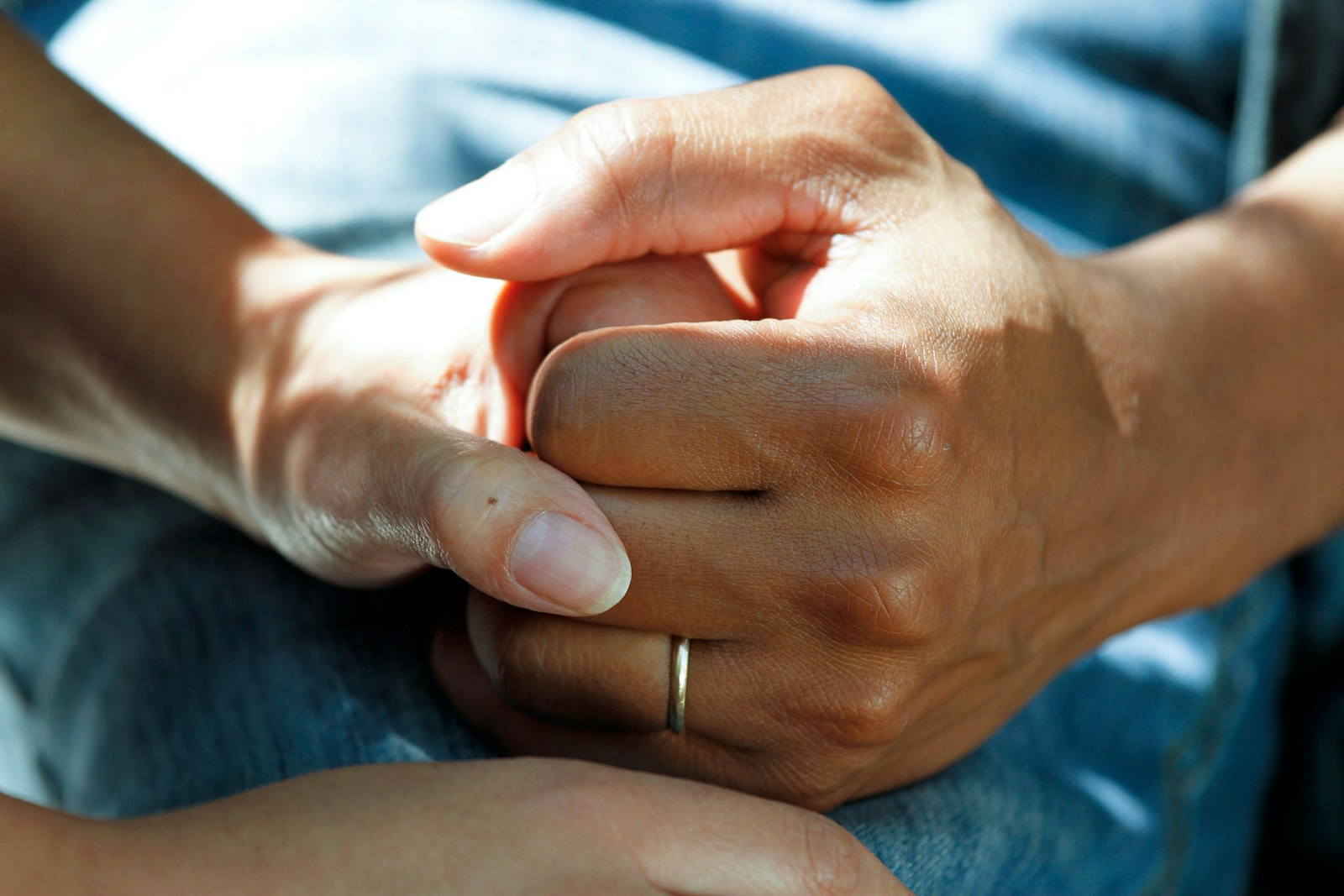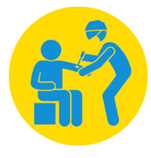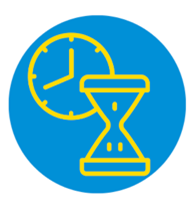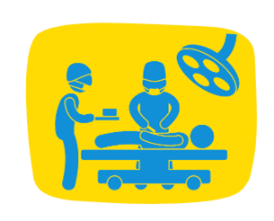
In Partnership with CSL Behring
One of the most stressful times in a transplant journey is waiting for your kidney transplant. In this part of your journey, it is crucial to look after yourself and prepare for your transplant by staying healthy mentally and physically.
Qualifying for a Kidney Transplant
Before even joining the wait list, you will have a full health evaluation by a transplant team at the transplant center that you choose to visit. The tests usually involve the following[1]:
 Complete medical and surgical history:
Complete medical and surgical history:
- The transplant team will carefully evaluate past illnesses, surgeries, and treatments, as well as your family history.
 Physical exam and psychosocial exam:
Physical exam and psychosocial exam:
- This evaluation is meant to assess whether you are physically and mentally ready for a transplant, which is a major operation with its own risks, as well as a major life change.
- Tests or consultations evaluating for other or concurrent medical conditions such as heart disease, pulmonary disease, etc.
 Compatibility tests:
Compatibility tests:
- These tests are necessary to
- try and find the best kidney match for your specific blood and tissue type .
- reduce the risk of rejection or your body’s immune system attacking the donor kidney.
- The combability tests include the following:
- A blood typing (ABO) test to assure that a donor kidney is a compatible blood type match.
- Tissue typing to assess a good match in tissue type between recipient and donor and reduce the risk of rejection.
- Crossmatching antibodies in your body to the donor kidney to reduce the risk of rejection.
 Blood tests:
Blood tests:
- Check the function of your organs.
- Assess your blood sugar levels and your electrolyte balance.
- You may also have special tests for infections, such as HIV, and hepatitis tests.
 Cancer screening:
Cancer screening:
- A prostate exam for men.
- A mammogram and pap smear for women.
- A colonoscopy, skin cancer screening, etc.
If there are problems with any of these tests, the transplant team will contact you and investigate further. Having another condition or health issues does not necessarily mean you will not qualify for the transplant waiting list. However, it is imperative to take care of your physical health and comply with instructions from your transplant team[2].
Once the tests have been evaluated and discussed, the transplant center will decide whether or not the team will recommend you for a kidney transplant. If you qualify, you will join the waiting list.
While Waiting for a Renal Transplant
Once you have been evaluated and accepted onto the waiting list, you will be assigned a priority score. While the transplant journey is far from over, this is a huge step toward receiving a kidney transplant which can potentially change your quality of life.
The wait may be long, but there are many things you can do to maintain your health and prepare for your transplant surgery, as well as life after transplant[3].
- You should always consult your doctor for personalized medical advice and ask them any questions you may have regarding your condition and treatment.
- Carefully monitor your diet and fluid intake.
- You will need to avoid foods high in potassium, such as bananas, and monitor the amount of fluids you drink, especially alcohol.
- Your transplant team will inform you on your diet and fluid restrictions.
- Exercise and stay at a healthy weight to help reduce the risks of complications during your transplant surgery and recovery post-transplant.
- If you smoke, stop smoking as soon as possible. Smoking has a negative impact on kidney transplant outcomes and your survival after transplantation[4].
- Attend all your appointments and manage other conditions. If you are on dialysis or are awaiting a preemptive transplant, attend all of your scheduled medical appointments.
- Remember to comply with your medications and maintenance dialysis and keep the rest of your body healthy with non-kidney appointments like regular physicals, immunizations and colonoscopies.
Understanding the Wait List

An important thing to understand during the waiting period is the waiting list itself. You can either join the waiting list for a deceased donor or wait for a living donor.
The waiting list for a deceased donor is run by the United Network for Organ Sharing (UNOS). It is determined by:
- the type of kidney disease
- likelihood of successful transplant
- years since starting dialysis (or number of years on the waiting list).
The average wait for a deceased donor kidney is three to five years. You are able to register for a donor kidney at multiple transplant centers or in multiple states, though many choose the closest transplant center.
Donations from living donors are much rarer and have a much shorter waiting period. The process is expedited and is on average three months long if you can find a relative or friend who
- is willing to donate,
- is compatible,
- is evaluated as an acceptable living donor.
Certain transplant centers specialize in living donations and will validate that the kidneys are a good match and that the donor is in good physical and mental health before the surgery.
If you secure a living donor who is not a good match for you, there are other options, such as paired exchange kidney transplants where the transplant center “swaps” two incompatible donor pairs for better matches in both recipient/donor pairs. If you would like to read more, check out the Innovations article here.
Receiving Your New Kidney
Once receive the call that you have been selected off the waitlist, and you may only have a matter of hours to get to the hospital. It is important to prepare ahead of time by:

- having a travel plan
- packing list or packed go bag,
- creating a to-do list, which might include items such as calling your pet or house sitter,
- discussing your transplant surgery plan with your loved ones and care partners
- finalizing any family plans, financial decisions, or medical decisions that may be needed, such as writing a living will or assigning a health care proxy.
Life Post-Transplant
During the pre-transplant period, you can get the facts to help you set realistic expectations for you and your loved ones about life post-transplant.
- Ask about what kind of restrictions you may have
- Find out what home assistance you may need
- Discuss when you can return to work or hobbies
- Learn what impact the transplant will have on other conditions, and any other concerns you have.
Your transplant journey is personal and should be tailored to your health needs and goals. A lot of information will be provided about the transplant surgery and post-transplant medications or lifestyle changes, and it may be overwhelming. Be sure to rely on your loved ones and care partner(s) to help you with the information and stress of waiting. It’s also important for everybody to set realistic expectations for your post-transplant life[5]. If you would like more information about life post-transplant, see the article here.
Once you’re armed with information and realistic expectations for both the waiting period and life post-transplant, it is important to stay positive and optimistic. Many find support groups helpful to hear from others who are in similar situations or to find more information through others’ experiences. The transplant journey is a lifelong journey, and it is full of uncertainty. So, having social support, whether that’s your family, friends or community, will help your mental and emotional well-being. Remember – you can bring a care partner, such as a loved one, to appointments and include them in your transplant journey. Caring for your mental health is just as important as caring for your physical health. If you would like to join TransplantLyfe’s community, visit us here.
The information, including but not limited to, text, graphics, images and other material contained herein are for informational purposes only. No material is intended to be a substitute for professional medical advice, diagnosis or treatment. Always seek the advice of your physician or other qualified health care provider with any questions you may have regarding a medical condition or treatment and before undertaking a new health care regimen, and never disregard professional medical advice or delay in seeking it because of something you have read here.
[1] Englesbe, M. J., Dimick, J. B., Fan, Z., Baser, O., & Birkmeyer, J. D. (2009). Case mix, quality and high‐cost kidney transplant patients. American Journal of Transplantation, 9(5), 1108-1114.
[2] Dageforde, L. A., Box, A., Feurer, I. D., & Cavanaugh, K. L. (2015). Understanding patient barriers to kidney transplant evaluation. Transplantation, 99(7), 1463.
[3] Reimer, J., Franke, G. H., Lütkes, P., Kohnle, M., Gerken, G., Philipp, T., & Heemann, U. (2002). Quality of life in patients before and after kidney transplantation. Psychotherapie, Psychosomatik, Medizinische Psychologie, 52(1), 16-23.
[4] Devresse, A., Gohy, S., Robert, A., & Kanaan, N. (2021). How to manage cigarette smoking in kidney transplant candidates and recipients? Clinical Kidney Journal, 14(11), 2295-2303.
[5] Jones, J., Rosaasen, N., Taylor, J., Mainra, R., Shoker, A., Blackburn, D., … & Mansell, H. (2016, October). Health literacy, knowledge, and patient satisfaction before kidney transplantation. In Transplantation Proceedings (Vol. 48, No. 8, pp. 2608-2614). Elsevier.


